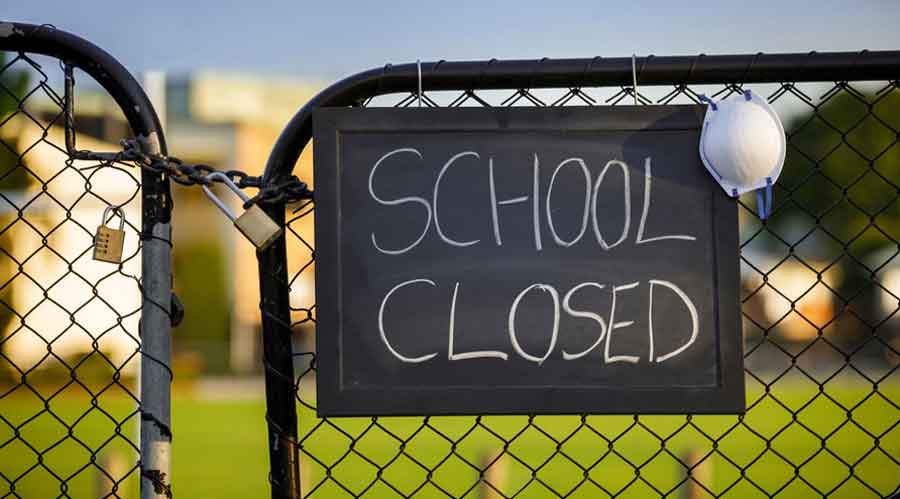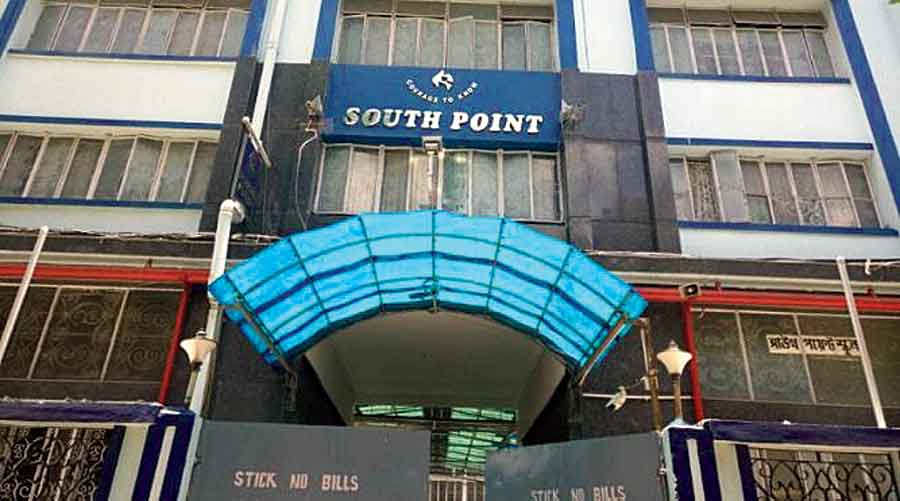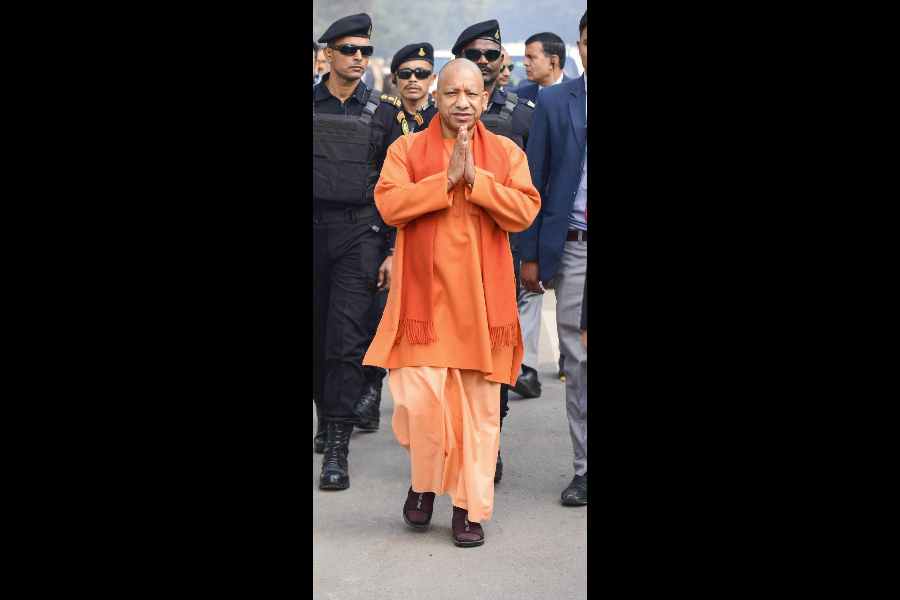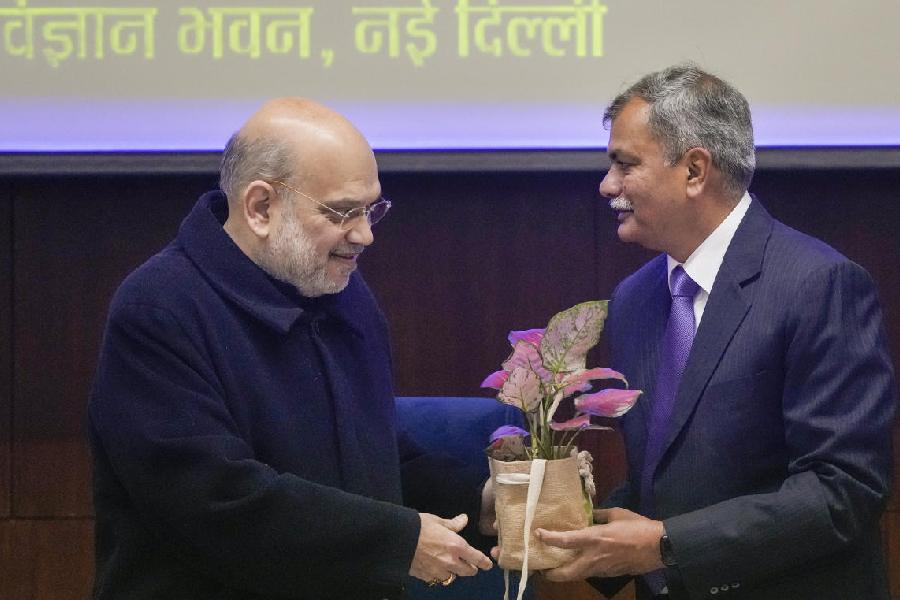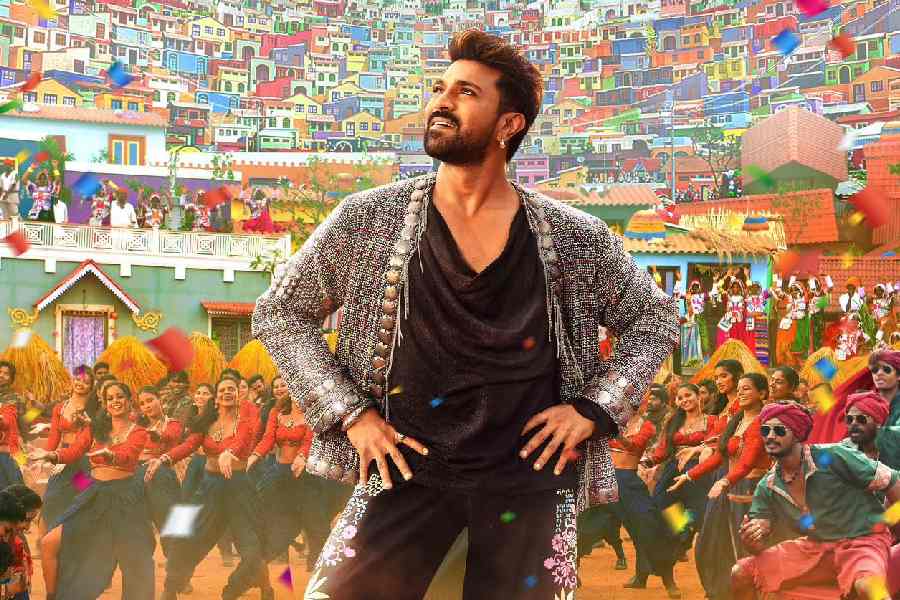Decisions about reopening schools need to be taken with great caution and only with the confidence that a large fraction of the population is protected either through vaccinations or natural infections, a top health official said on Tuesday.
Schools provide opportunities for the coronavirus to spread through medium or large gatherings and could contribute to growth of infections, said Vinod Paul, a senior paediatrician, member of Niti Aayog, the government’s apex think tank and a key adviser to the Centre on Covid-19.
“We should take that risk only when we are better protected, the virus is suppressed, and we are able to sit at a distance,” Paul said, underscoring that India’s second Covid-19 wave is shrinking only through the restrictions and discipline imposed by states across the country.
“It is not easy to take a decision to open schools at this point,” Paul said, while calling for continued precautions and vigilance by health authorities, governments and the public across the country amid speculation about a possible third wave.
Paul said a third wave is “not inevitable” and whether and where a future surge occurs would hinge on the actions and responses of people and the system. “There are countries where even the second wave has not occurred. If we do what is required and do not indulge in irresponsible behaviour, outbreaks should not occur.”
India’s number of active Covid-19 cases has gone down from a peak of over 3.7 million in early May to about 645,000 patients on Tuesday after a near steady decline. The epidemic has shrunk and is under control in 553 districts where the fraction testing positive among those tested has fallen to an ideal below 5 per cent.
Paul said in such circumstances, there are responsibilities for the system and for individuals. The system, he said, should focus on making available diagnostic tests, isolating patients and providing treatment to those who require it, and tracing contacts, while people need to adopt personal precautions and avoid crowds and seek out vaccinations.
Infectious disease specialists have estimated that when about 70 per cent of the population is protected through vaccinations or natural infections, the virus will be unable to cause outbreaks, although a trickle of cases will continue.
Sections of public health experts believe such cautionary messages should have been iterated in much stronger tones during January and early February ahead of the planned election rallies and the Kumbh Mela that many experts suspect contributed to the spread of the virus.
While Paul and other health officials during those months did issue calls for caution and the Union health ministry had on March 21 warned that the Kumbh Mela in Haridwar (Uttarakhand) could contribute to a surge in cases, experts believe those messages remained largely unheeded.
Outdoor walk
Paul said the elderly who have been fully vaccinated may venture out with caution for outdoor walks but need to, like all other people, continue to avoid crowds. “In a calibrated manner, yes, they could go out into open spaces,” he said.
The health ministry had last year issued guidelines urging the elderly to confine themselves at home except for essential work.

